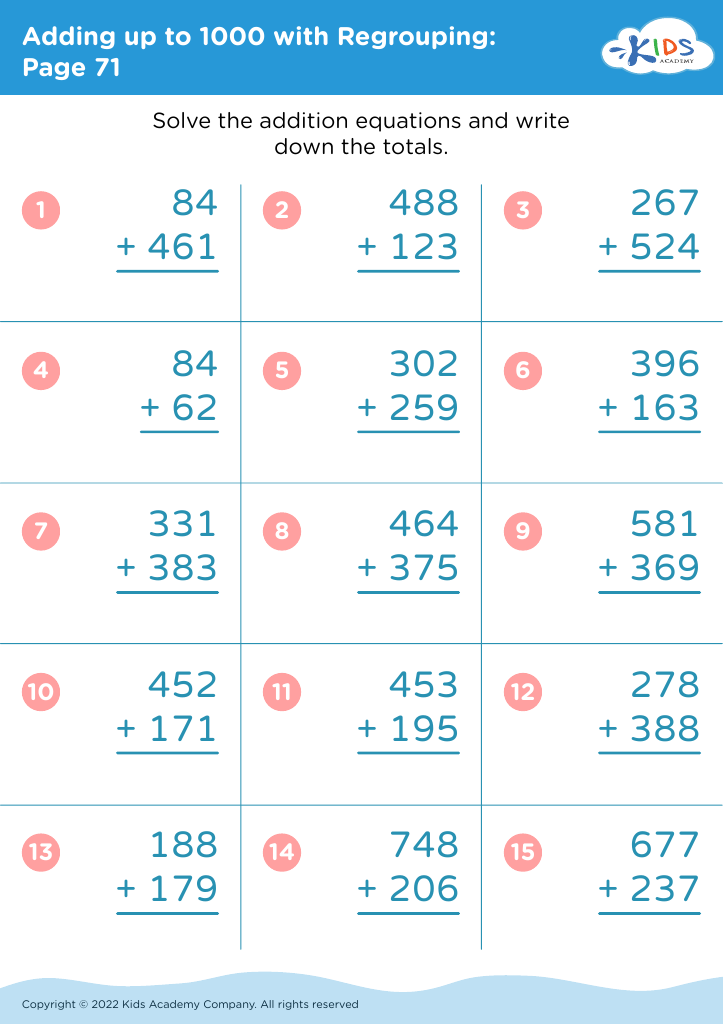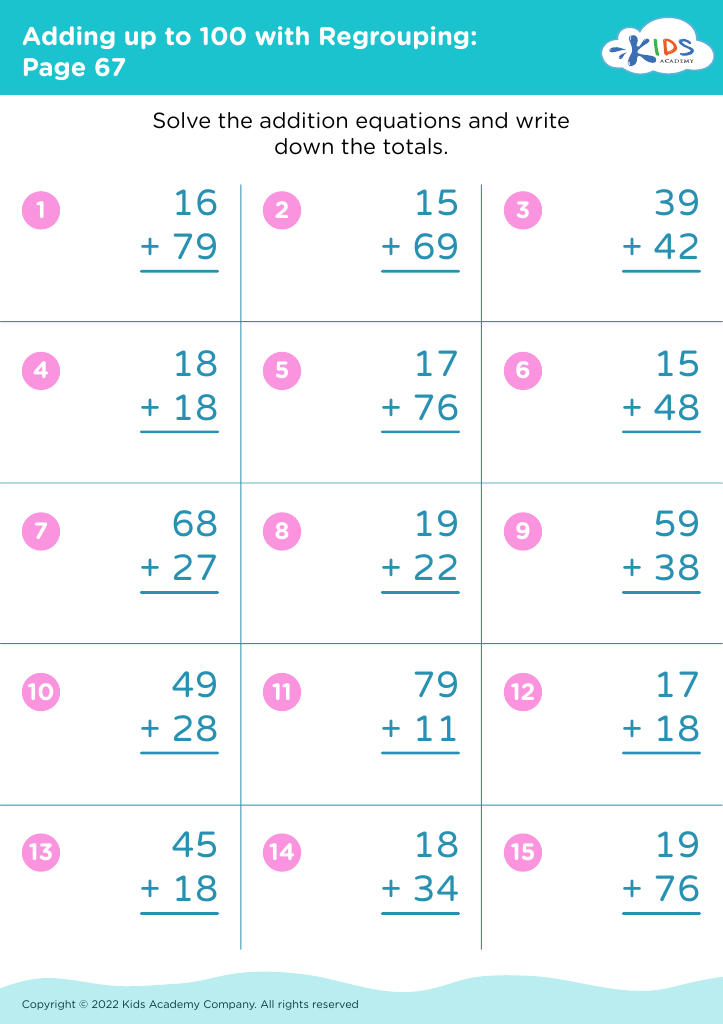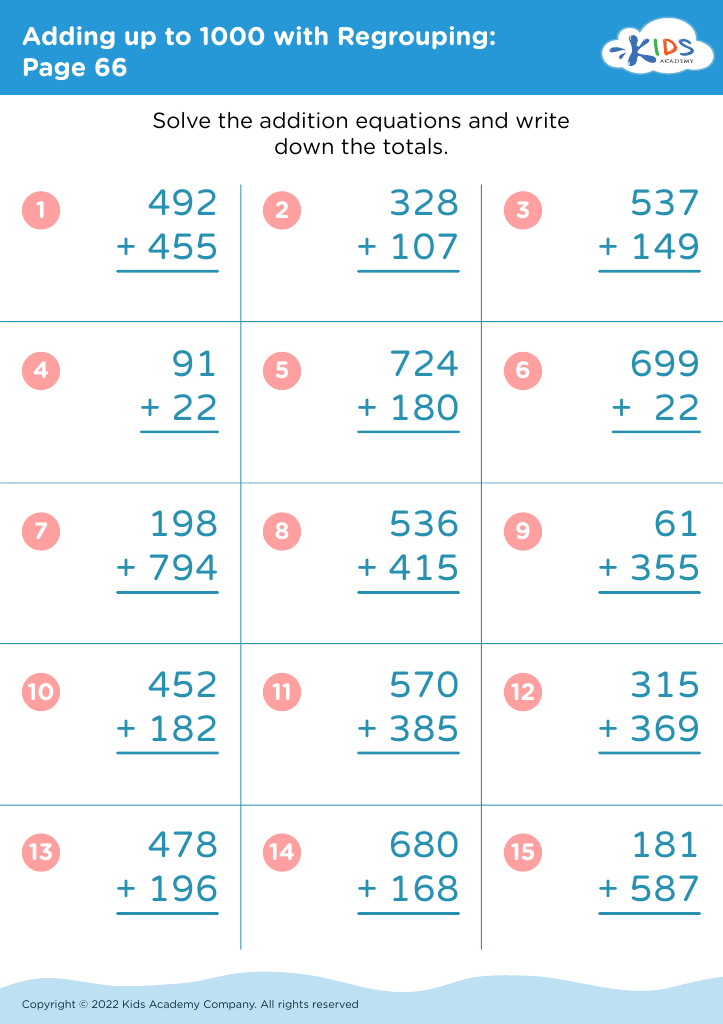Enhances number recognition Addition & Subtraction Worksheets for Ages 6-9
4 filtered results
-
From - To
Boost your child's math skills with our carefully crafted Addition & Subtraction worksheets designed for ages 6-9. Tailored to enhance number recognition, these engaging worksheets not only make learning fun but also build a strong foundation in essential math concepts. Perfect for young learners, each activity encourages practice and reinforces understanding of numbers, helping children transition seamlessly from counting to performing basic arithmetic operations. With vibrant illustrations and a variety of exercises, our worksheets are designed to keep kids motivated and excited about math. Start your child's journey to becoming a confident mathematician today with KidsAcademy!
Parents and teachers should prioritize enhancing number recognition and early arithmetic because these foundational skills are crucial for a child’s academic progress and everyday life competence. Between ages 6-9, children's brains are highly receptive to learning new concepts, making this the ideal period to introduce and reinforce these skills. Proficiency in number recognition and basic arithmetic (addition and subtraction) underpins all future math learning, from more advanced arithmetic to algebra and beyond.
First, confident number recognition enables children to understand and work with numbers effortlessly, which is essential for grasping more complex mathematical concepts later on. When children can quickly and accurately identify numbers, they can more easily follow lessons and instructions in class, reducing frustration and boosting confidence.
Second, competency in addition and subtraction provides practical problem-solving skills. It allows children to engage in daily activities such as handling money, understanding time, and measuring objects. These real-world applications make learning relevant and engaging, fostering a more positive attitude towards math.
Moreover, early success in math builds a solid foundation for academic achievement, leading to better performance in school. Basic arithmetic also encourages analytical thinking, attention to detail, and logical reasoning—skills valuable across all subjects and in everyday scenarios. Therefore, prioritizing these skills early on lays the groundwork for lifelong learning and success.
























